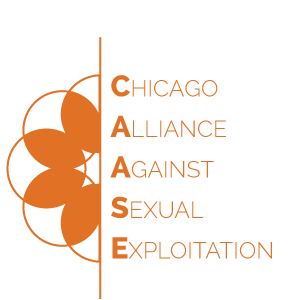Cyber Sexual Abuse
What it is and how to get help
Alex* matched with a woman on a dating app. After some get-to-know-you conversation, the woman asked if they could exchange suggestive photos. She went first. After Alex sent a few in return, the person on the other end said that they would send the pictures to Alex’s family, friends, and colleagues if he didn’t send money.
What Is Sextortion
This kind of sexual harm is often referred to as “sextortion”—threatening to reveal nude photos or other evidence of sexual activity unless the victim provides money or even sexual favors. It’s one type of cyber sexual exploitation and cases are on the rise.
But these cases don’t always look like Alex’s. It can take many forms.
Other examples of cyber sexual exploitation include:
- an abusive boyfriend threatening to send around your nude photos if you try to leave the relationship,
- a partner who set up hidden cameras in the bedroom to record videos and posted them online without your knowledge,
- an offender tormenting you with photos they took of you unconscious during a sexual assault, and more.
What is Revenge Porn
Cases that don’t involve extortion—using threats to get money or something of value—often fall under the category of “revenge porn,” a term commonly used to describe the distribution of sexually explicit images or videos of individuals without their consent. This includes images or videos that were:
- initially taken and shared with consent, such as nude photos sent to a partner within a trusting relationship,
- hacked or stolen,
- edited using deepfake technology,
- taken without the subject’s knowledge such as through hidden cameras or upskirt photos in public, and more.
Regardless of how the images were taken, if nude photos or videos of you are being posted online or exchanged through text, email, or social media, your state may have laws to protect you.
In Illinois, it is both a criminal offense and a civil violation to nonconsensually distribute or threaten to distribute sexual photos and videos. The attorneys at CAASE are prepared to help you deal with these types of cyber sexual assaults.
What You Can Do
If you are a victim of sextortion or revenge porn, here are some things you can do:
- Set all of your social media accounts to private and ensure that you don’t have any followers that you don’t know personally.
- Don’t respond to someone, especially a stranger, who is extorting you. Once you start sending money, they will continue to push for more.
- Save all evidence. Make sure to keep the actual photos or videos in question, as well as any threatening conversations with the offender, witnesses, or other crime details until you have spoken with the police or a lawyer. Many victims of cyber crime feel fear, shame, or embarrassment. They may react by deleting evidence. This response is understandable, but remember that there is no shame in being a survivor of any kind of sexual exploitation, including cyber sexual exploitation. There is support.
- Consider filing a police report. If you decide to pursue this option, you will have to share the evidence you have—the video or images that are at issue. CAASE attorneys can talk to you about this process and help you decide if this is right for you.
- If you are under 18, both the possession and distribution of sexual images or videos of you would also be considered child pornography. Please contact the police as soon as possible. Do not resend or delete the images without consulting the police or an attorney.
- Contact an attorney who knows how to handle these cases, such as CAASE**. Our attorneys can assist you with both civil and criminal cases in response to cyber sexual exploitation. We can also help you file a police report if you would rather contact us first to explore your options.
Getting Help
Alex found CAASE online and reached out for help. With our assistance, the images were never shared or made public. If you or someone you know needs assistance with sextortion or revenge porn as Alex did, please call our intake line at 773-244-2230, ext. 205 or email legal@caase.org.
Please note that CAASE works on cases that took place in Cook County, IL, and involve victims aged 13+. Minors do not need a parent or guardian’s permission to talk to us. We cannot assist with cases involving criminal defense, family court, or immigration. If we cannot assist with your case, we may be able to refer you to someone who can.
*Alex is a pseudonym for a real person represented by a CAASE attorney. Stock photography was also used to protect their identity.
CAASE published this piece on March 28, 2023. It was authored by Emily Jones and Hayley Forrestal with input from Elizabeth Payne. Learn more about our staff here.



